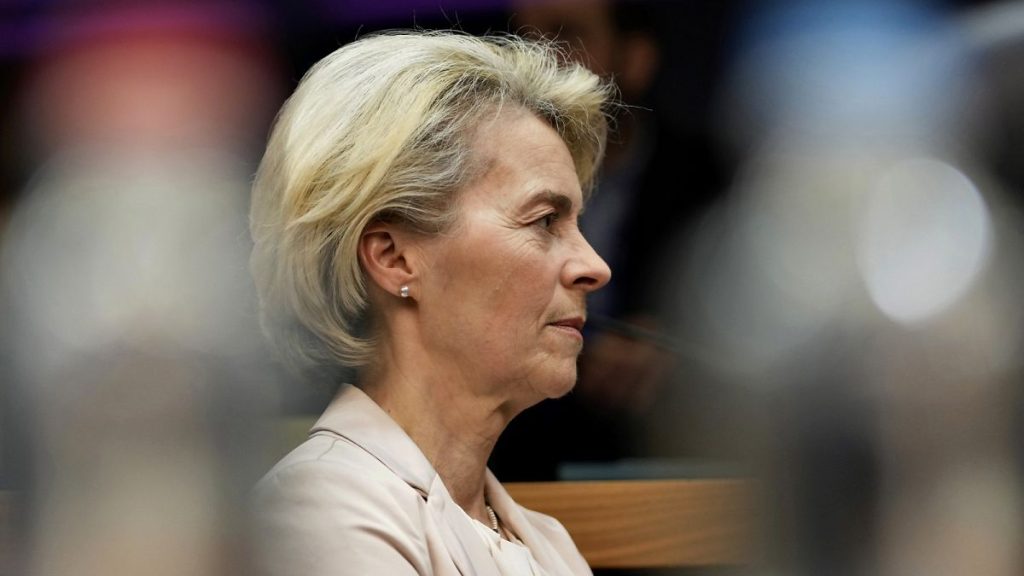Ursula von der Leyen has navigated through a series of crises during her tenure as the president of the European Commission, such as the global pandemic, Russia’s invasion of Ukraine, energy shortages, irregular migration, China’s assertiveness, online threats, and climate change impacts. Now, she is seeking re-election as the lead candidate for the European People’s Party (EPP) and is facing scrutiny over her legacy and policies. The question arises whether she still aligns with conservative values, as some critics within the EPP have raised concerns about her perceived technocratic approach and her alleged shift towards the left.
Von der Leyen’s agenda touches on various right-wing issues such as family values, security, border controls, economic growth, competitiveness, and farmers, but her recent speeches and actions have steered clear of the term “conservative.” The French delegation of the EPP has criticized her for what they perceive as a technocratic drift and de-growth policies, while the Socialists & Democrats have accused the EPP of embracing far-right talking points. This political polarization has led to questions about von der Leyen’s ability to maintain consensus and whether she prioritizes ideology over pragmatism in her policies.
The European Commission under von der Leyen has pursued initiatives that appeal to both the left and the right, including asylum reforms, employment support schemes, platform workers’ rights, minimum wage standards, media freedom laws, LGBTIQ strategies, and the European Green Deal. However, categorizing her policies under a specific ideological label may oversimplify the complex nature of the EU institutions, where consensus-building and negotiation with member states are essential. Von der Leyen’s emphasis on “European solutions” seeks to transcend political divides and address common challenges collectively.
Despite her hands-on approach to crises and ambitious policy agenda, Ursula von der Leyen’s political beliefs remain enigmatic to observers. She has demonstrated a commitment to European integration, the Transatlantic alliance, and Israel, but her stances on issues like migration have shown flexibility depending on political trends. Critics have accused her of opportunism and lack of coherent policy implementation, citing her centralization tendencies, avoidance of controversy, and reliance on a close circle of advisors. This perceived political ambiguity has earned her the nickname “Queen Ursula” in Brussels.
Some analysts believe that von der Leyen’s political convictions may be shaped by expediency rather than firm beliefs, adapting her agenda to suit the prevailing political climate or secure votes. Her pragmatic approach to policy-making has drawn both praise for her leadership during crises and criticism for her perceived lack of consultation and transparency. As she seeks re-election, von der Leyen’s ability to balance competing interests within the EU and address criticisms surrounding her alleged ideological drift will be closely watched by voters, member states, and political factions across the bloc.


